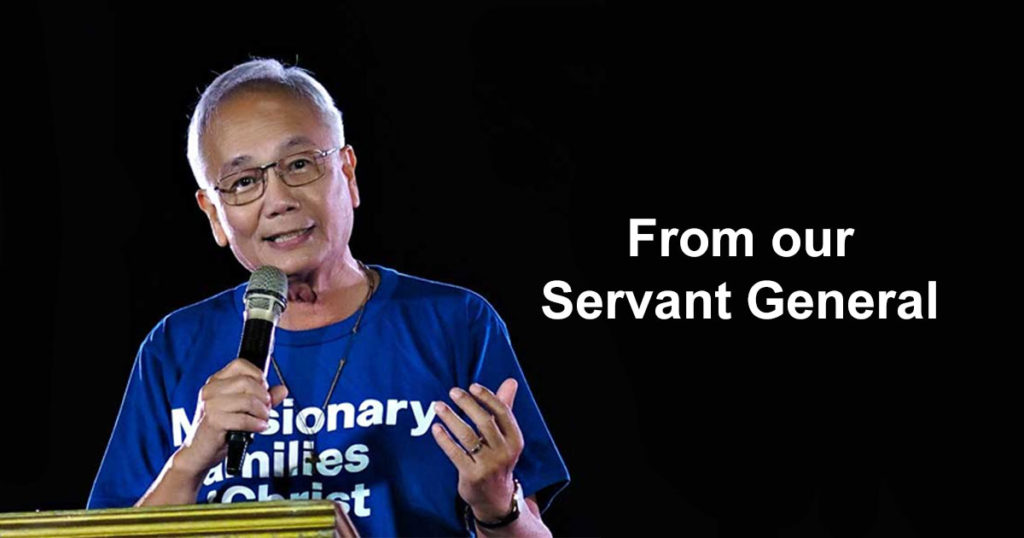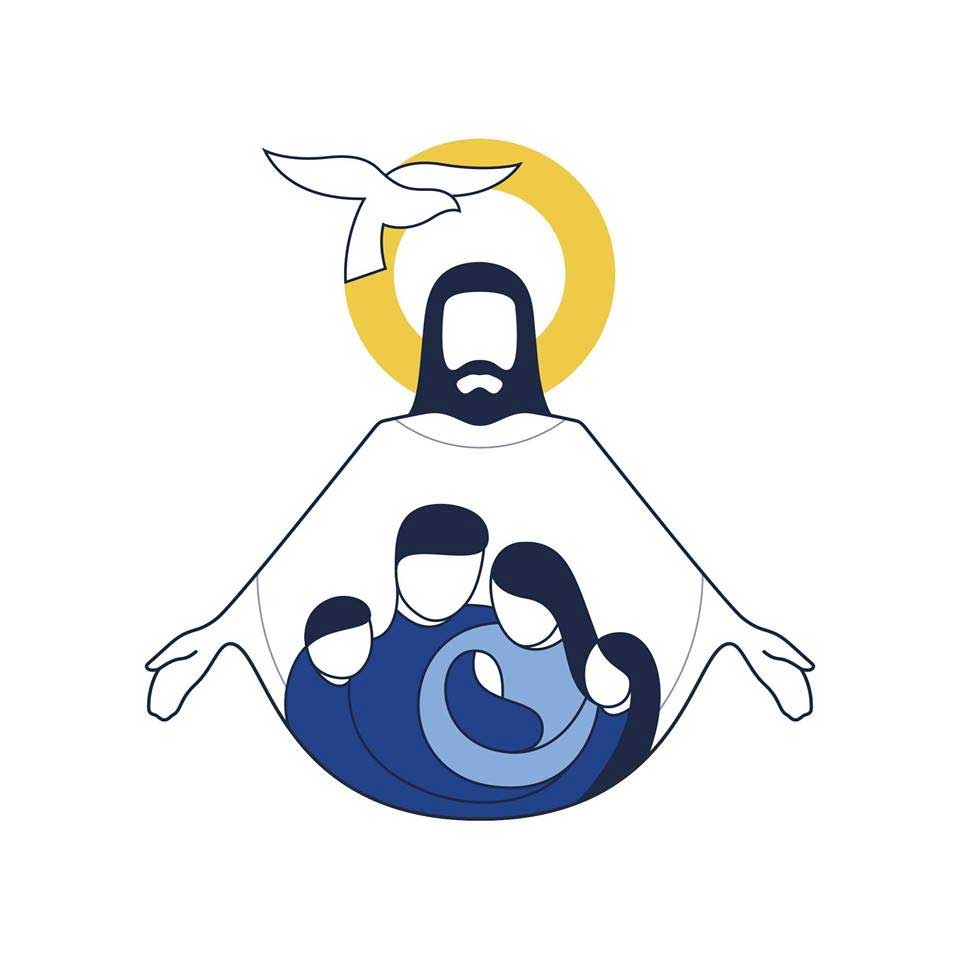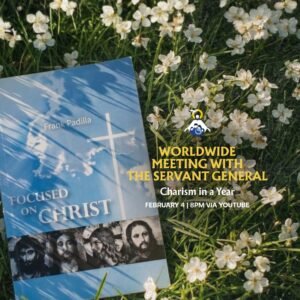FROM THE SERVANT GENERAL
HOLY WARRIORS
(Part 69)
DAVID AND URIAH
January 28, 2022
Today’s readings:
2 Samuel 11:1-10,13-17
Psalm 51:3-7,10-1
David was a man after God’s own heart. He was God’s warrior, who won Israel’s wars and built up the kingdom of Israel. But he also fell into grievous sin. With one grievous sin on top of another.
- He lusted against another man’s wife, Bathsheba, and committed adultery with her (2 Sm 11:2-4).
- He schemed to have Uriah be intimate with his wife to cover up his deed (2 Sm 11:6-8).
- He got Uriah drunk so that he would be intimate with his wife (2 Sm 11:13).
- Finally he plotted how to kill Uriah (2 Sm 11:15-17).
- That was not the end of David’s sin. He orchestrated things so that he could pretend to be surprised at the outcome of the battle that killed Uriah, even feigning anger at putting Uriah in front (2 Sm 11:18-21).
- Then he took Bathsheba as his wife (2 Sm 11:26-27a).
Lust, adultery, murder, deception, manipulation. “But in the sight of the Lord what David had done was evil.” (2 Sm 11:27b).
David would have gotten away with his evil deeds (in the eyes of men, that is) if Nathan the prophet did not confront him with his sin. But when confronted, David repented. And God forgave him. And God continued to use him until his death.
We too unfortunately fall into sin, but what is important is to recognize the sin, repent and be restored to God’s grace. Know that the enemy will tempt and seek to bring us down, especially those holy warriors being used by God. What should we know about sin and our proper posture?
- We are born with original sin, and even as that sin is washed away by Baptism, there remains the flesh which is prone to sin. “Behold, I was born in guilt, in sin my mother conceived me.” (Ps 51:7).
- We can always look to God’s mercy, as we sincerely repent. “Have mercy on me, God, in accord with your merciful love; in your abundant compassion blot out my transgressions.” (Ps 51:3). When we repent, God forgives us and remembers our sin no more. “Thoroughly wash away my guilt; and from my sin cleanse me.” (Ps 51:4).
- We must know what is right and wrong, and examine our conscience regularly, in the light of the word of God and the age-old teachings of the Church. As holy warriors we should be vigilant of the enemy within us, which is our own flesh. “For I know my transgressions; my sin is always before me.” (Ps 51:5).
- We must strive not just to avoid sin but to grow in holiness. In fact, the defense against sin is a sincere striving to be good and holy. “Cleanse me with hyssop, that I may be pure; wash me, and I will be whiter than snow.” (Ps 51:9).
In contrast to David, there was that other warrior, Uriah. He was the armor-bearer of Joab, the head of David’s army. He is hardly spoken of, but we as holy warriors can learn from him.
When given R&R directly by King David and told to go to his house (and be intimate with his wife), Uriah did not do so, but rather stayed with the other officers (2 Sm 11:8-9). He explained why to David, that the army was in tents in the open field, at war, so he could not in conscience enjoy the comforts of home (2 Sm 11:11). David tried again and got Uriah drunk. But Uriah still did not go home but stayed with David’s servants. Uriah then went back to the battlefield and gave everything he had, including his very life.
Uriah was a holy warrior, loyal to the king, one in heart and mind with his comrades-in-arms, obedient to marching orders, thinking not of himself but the cause, enduring discomfort, at the very thick of the fight, valiant in battle, and giving his all including his life.
As holy warriors, we are to engage the enemy and give our all for the cause of Christ. We struggle too with our inner demons, but know of God’s mercy, which we must never take for granted. We must avoid sin and strive for holiness.
On to battle. HO-WA!








